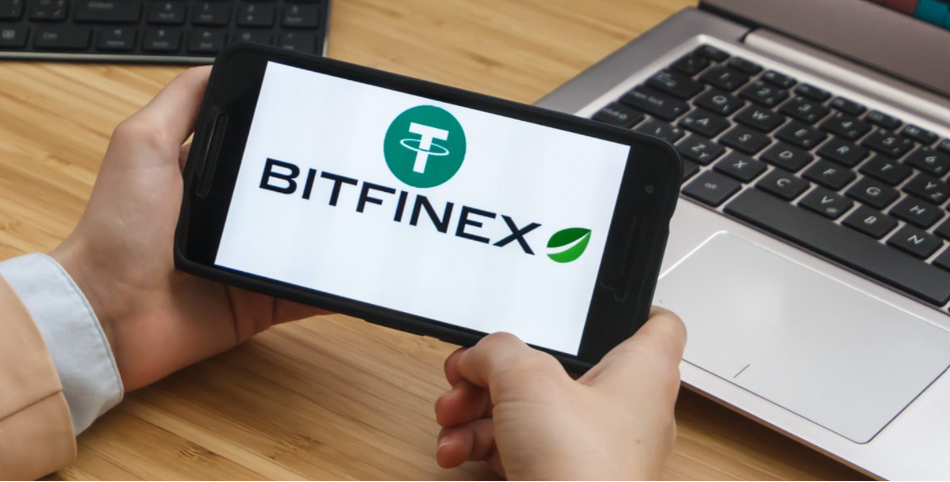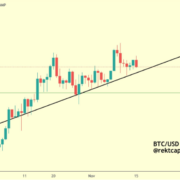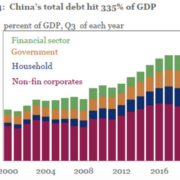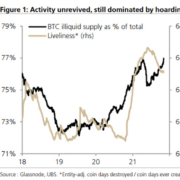Crypto and Bitcoin aren’t a perfect asset class, and it doesn’t pretend to be.
It’s still an emerging currency that still has holes to caulk.
One major item on the list that needs to be taken care of is security.
Bitcoin (BTC) itself is secure, but the exchanges that do business with you and I aren’t and that’s the underlying problem here.
When exchanges aren’t secure, they are ripe for hackers to raid and that is what happened to Bitfinex and Mt. Gox in Japan.
This is why I pound on the table to urge readers to get into the most secure crypto exchanges out there.
The exchange you do business on could go a long way in determining if you keep your crypto fortune in the future.
Just as crypto has boomed in popularity, the Feds have backed up the boom by acting like a good cop and tracking down the bad guys.
The Justice Department announced it seized more than $3.6 billion in allegedly stolen cryptocurrency linked to the 2016 hack of Bitfinex.
As part of the operation, authorities detained a New York couple on allegations they planned to launder the digital goods.
It has been recorded as the largest financial seizure ever by authorities.
The second largest theft came from the Japanese exchange Mt. Gox that got swindled in February 2014.
The exchange lost 850,000 bitcoins, worth about $474 million, but later found 200,000 of those bitcoins.
It still is a mystery as to who stole the coins at Mt. Gox and the exchange is in liquidation proceedings.
Let me also chime in by saying that the easiest way for theft to occur is an inside job in many of these cases as these web engineers know the system inside and out.
Despite the bad press and billions lost, crypto has continued its rise and adoption as a real alternative to the U.S. dollar and equities.
But security breaches are a reminder of the vulnerabilities of cryptocurrency technologies.
Every hack is also an opportunity to learn and grow resilient.
A bitcoin is actually just a secret number or piece of code. To transfer a bitcoin, a person must verify a planned transaction with a private encryption key. But if the private key is stolen, the attacker can steal the bitcoin.
Because all bitcoin transactions are recorded in the public blockchain, it is possible to follow the movement of stolen coins.
Bitcoins are transferred between 34-character alphanumeric addresses, which appear in the blockchain.
Bitcoin addresses don't reveal information about who controls the funds. But stolen funds are often difficult to convert to fiat currency. Exchanges usually have strict identification requirements for account holders to comply with anti-money laundering regulations.
Suddenly cashing out a large quantity of stolen bitcoins at a reputable exchange from a closely watched bitcoin address is unfeasible.
Even though the billions were stolen, the perpetrators' fingerprints were all over this crime as mentioned above, it’s hard to cash out stolen crypto because it can be tracked.
The couple who stole the Bitfinex funds found out this the hard way as Ilya Lichtenstein, 34, and his wife, Heather Morgan, 31 were arrested.
Authorities accuse the pair of trying to launder the proceeds of 119,754 bitcoin that were stolen from Bitfinex’s platform after a hacker breached Bitfinex’s systems and initiated more than 2,000 unauthorized transactions.
Prosecutors allege that the transactions sent the stolen bitcoin to Lichtenstein’s digital wallet.
He should have just given them back since the authorities knew where the coins were sent.
Officials said they were able to seize more than 94,000 bitcoin, which was valued at around $3.6 billion at the time of seizure. In all, the total stolen bitcoin is presently valued at approximately $4.5 billion, according to the agency.
The arrest should deter future hacks because of the unlikelihood of cashing out once the secret bitcoin number is tracked to an individual wallet.
It will be years until hackers can get around this ID problem and as long as the Feds show they are serious about rampant crypto theft, then it should keep the crypto markets in check.
This is an unmitigated win for crypto and the security of it.
The playbook for crypto traders and investors should be to move to higher ground and only buy and sell on the biggest and best exchanges.
Some of the exchanges I might recommend are Coinbase, Kraken, Binance, Robinhood and Webull.
I probably wouldn’t deviate too much from these strong American exchanges that have the rubber stamp of approval from the overall consensus.
Caveat Emptor!






